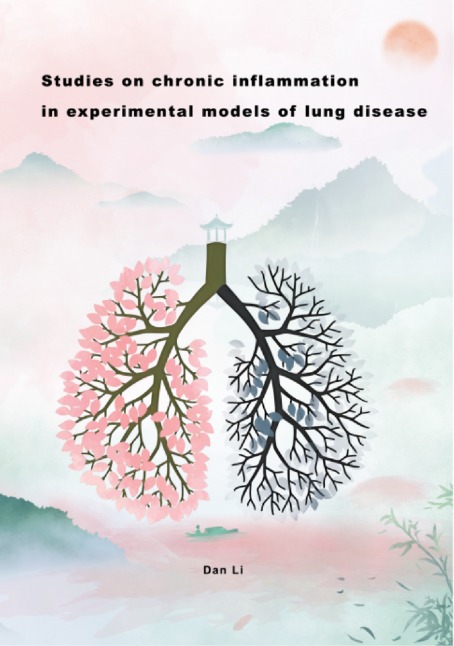PhD defence D. (Dan) Li
| When: | Mo 24-02-2025 14:30 - 15:30 |
| Where: | Academy Building |

Studies on chronic inflammation in experimental models of lung disease
Lung diseases, including COPD, asthma, and lower respiratory infections, are among the leading causes of death worldwide. These conditions cause symptoms such as dyspnea, coughing, and wheezing. Current treatments—corticosteroids, bronchodilators, biologics, and vaccines—help manage symptoms but cannot halt or reverse disease progression. Understanding the mechanisms of chronic inflammation in these diseases is crucial for developing better therapies.This thesis explores chronic inflammation across multiple lung diseases, focusing on immune regulation using animal and in vitro models. We investigated how allergic inflammation alters immune responses to influenza virus infection, we found that mice co-infected with house dust mites and influenza showed impaired immune responses, leaving the lungs more vulnerable to viral infections. We also examined lung epithelial progenitor cell responses to damage from lipopolysaccharide (LPS), a Gram-negative bacterial component. Our findings indicate that LPS promotes lung repair via TNF receptor 1, a potential therapeutic target for bacterial injury recovery. Additionally, we studied the effects of the P2X4 receptor antagonist BR11595 on asthma symptoms triggered by ovalbumin exposure. BR11595 effectively reduced airway hyperresponsiveness, eosinophilia, and mucus production, demonstrating its potential as a rapid-acting asthma treatment. Overall, this thesis provides new insights into the mechanisms of chronic inflammation in lung diseases, highlighting potential therapeutic targets for improved treatment strategies.
